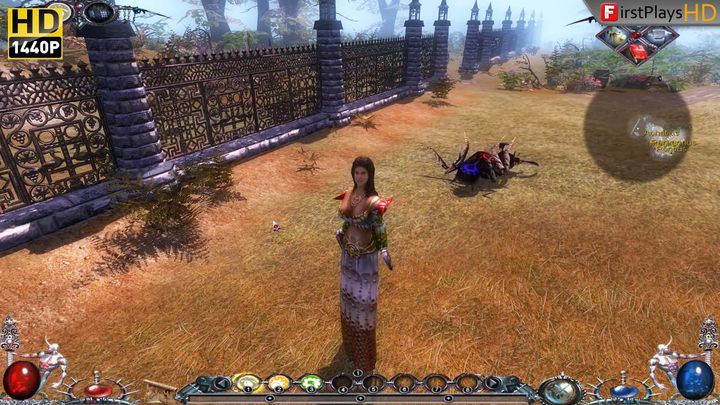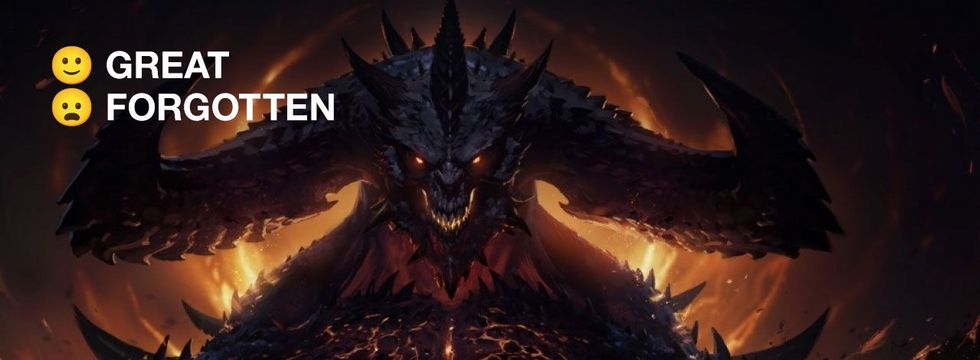We Rediscover the Best, Forgotten Hack'n'slash Mechanics
Inspiration, imitation, carbon copy or even plagiarism. Game developers are constantly drawing on the achievements of their predecessors by picking up certain schemes, mechanics. Sometimes, oh horror, in the frenzy of duplication, they overlook some gems.
Table of Contents
Sometimes the simplest and even the only way to succeed is to find imitators who are a testimony that the chosen direction was right. Such a game then has a chance to be called the father of a piece of gaming, a precursor of some solutions, a spark of change or, well, the dawn of an entirely new genre. However, it's not about a game or series and their individual features. It's about the collective and how, by copying, we perpetuate certain patterns and define genres, set directions and define new trends that other developers will follow.
Unfortunately, both players and developers sometimes seem blind and miss the mechanics worth paying attention to, imitating and duplicating. Oh, woe to such a direction. For nothing more awaits them than oblivion or living in the memory of a handful of fans, at best possible exhumation on the occasion of articles such as this.
You know what's weird about all this? When we ask any experienced developer, expert or any person from the street for a recipe for success for a young game developer who wants to start his or her way in this difficult industry, we usually get a simple answer: "Find one 'feature', an original mechanic, around which you will build the game." For those slightly more experienced and aiming higher, the advice would be deceptively similar: "Do what others are doing, just add a 'feature', a piece of original gameplay mechanics, around which you will build your marketing and some identity." And since no one asked me, I'll take the chance to say more: "You don't have to reinvent the wheel. Reach for these forgotten solutions, pearls sunk in the sea of content waiting to be fished out, to reveal their brilliance to the world anew. I can show you such mechanics right away. A whole damn school of mechanics." And that's what I'll do. Even if they were only small things that could diversify and refresh the ossified formulas. Today I will try to give a helping hand to the creators of games from a genre that needs a breath of fresh air like no other, namely, hack'n'slash games. You're welcome.
Magic on a large scale

The multitude of games that I will mention today are titles that have somehow failed. Time has quite efficiently wiped them from our memory, disks and libraries. An example of such a title is Dawn of Magic , a game by all means unique, whose creativity diamonds have been sunk in a slush of mediocrity that does not allow them to shine, and sometimes even hides their existence. Maybe it would have been a good idea to bring out these precious stones, give them a cut, polish and frame to display their true value?
The original and leading feature of this game, i.e. gameplay based almost exclusively on the use of spells , is something unique in itself. The consequence of this idea is a system of magic based on twelve (!) schools dealing, for example, with bone magic or using pentagrams. Each such school has eight spells representing one of three categories: active, passive and supportive. Spells can be developed and freely combined, creating interesting combinations between schools. Magicka took advantage of this unique system a bit later, so - well - Arrowhead studio beat me in digging up gemstones. However, some of them remained in the game, created by the SkyFallen team.
For example, the system of the influence of magic on the protagonist. How often do you resort to using bone magic? Your skin will become deathly pale, and you will finally start to resemble the dead. Do you overuse fireballs and other fiery juggling techniques? Fiery red horns will adorn your hero's skull, and his eyes will glow with a blazing glow. Cool, right? Oh yeah. Someone will probably rightly say, that today we have skins that do the same thing, but the very fact of visualizing character development seems interesting and worth considering . Not very popular in the "hack'n'slash" genre.
Titan Quest did a pretty good job with this as well. In this case, the effects of magic-focused characters' spells increased together with the damage they dealt, so the fireball lazily wandering towards the enemy became an exploding volcano of fire over time. Brilliant in its simplicity and oh how satisfying was the scaling of physical effects in line with the player's power. Encountering a group of low-level opponents resulted in an Obelix effect, and our punches allowed enemies to make a close and fairly brief acquaintance with walls, surrounding trees or the sky if the hit was an uppercut.
Closing the topic of magic mechanics, we should also mention the old Revenant from 1999, in which spells had to be unlocked by combining various talismans obtained during the game . They allowed you to use high-level incantations, as well as, for example, simple spells that conjure food. It was a pleasantly sophisticated, magical crafting, somewhat reminiscent of the solution known from the first two Gothic games.

